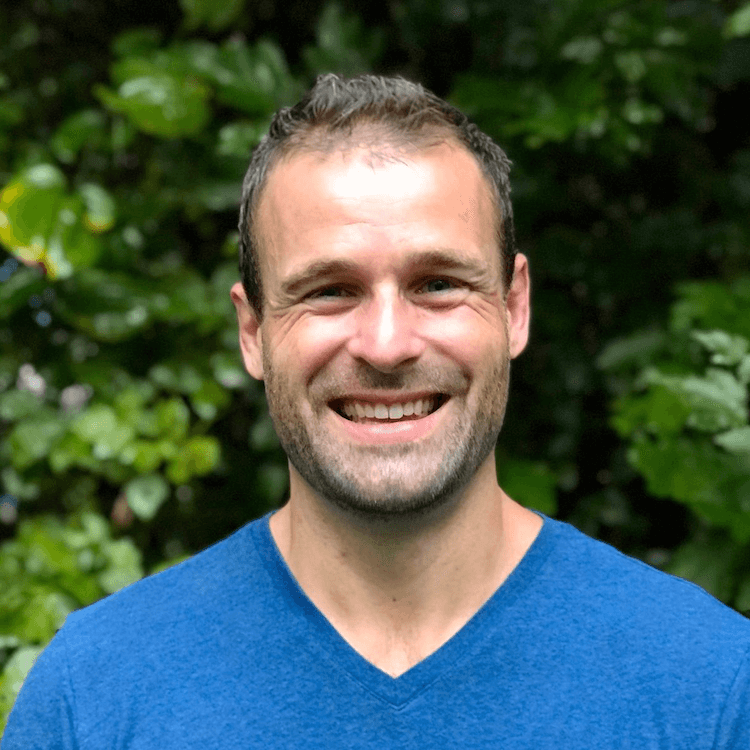Could we get some biographical information from you? Where you’re from, academic history, professional history, experiences in recovery, family life etc?
I was born and raised in Nashville, NC. It’s a small town in Eastern NC. I went to a small liberal arts University called Gardner-Webb University where I majored in Psychology and Religious Studies with an emphasis in Philosophy. I returned there to get my Masters of Arts in Mental Health Counseling. I came from a family that hadn’t previously had anyone graduate from college so my dad put a pretty big emphasis on getting my brother and me through school.
What made you want to work in a) the clinical field generally and b) substance abuse specifically? And what made you decide to change your focus to working in Outreach?
Honestly, I grew up around a lot of heavy and problematic substance use and had no interest in working in the field of substance abuse. It felt “too close to home.” However, as I was set to graduate from my Master’s program, I got an offer to interview for a case manager position at a residential program and I had no other offers available to me. I knew that I liked to have food on the table and had no real prospects for how I was going to make that happen so I figured I’d take the job until something else opened up and, well…I ended up loving it.
Around about eight years into my clinical career I had become involved in some outreach efforts and found that I enjoyed the challenge of finding ways to best represent the ideals and practices of the program. This felt invigorating for me and opened up challenges that I hadn’t previously experienced. Additionally, I started to recognize that I had developed artificial constraints in my head about what I could and couldn’t do and switching to Outreach fulltime gave me a way to challenge those.
The other reason I changed my focus to Outreach was it gave me a chance to join the Green Hill team and I believe I’d be hard pressed to find another environment that relished it’s team members questioning assumed constraints as much as Green Hill does.
What precisely does a Clinical Outreach Director do?
I view the role of a Clinical Outreach Director as being able to distill complicated ideas into readily graspable concepts and narratives that can help others figure out if our program is a good fit for them or their clients. I also view it as my job to make sure we have healthy relationships with various resources and that I can translate what they do and what we do for different people.
What keeps you coming to work back day after day?
The culture of Green Hill is what keeps me coming back. It’s a culture from the top down that prioritizes personal and professional growth and operates off the sincerely held belief that cultivating this sort of culture will impact and challenge our clients. Getting to be a part of that sort of culture is invigorating for me and feels like we are continuing to build something that can be transformative.
What do you believe makes Green Hill stand out in its field, and why?
I think I run the risk of sounding like a broken record, but it’s our culture. Our leadership team has frequent conversations about cultivating a vibrant and growth-oriented culture amongst ourselves. It’s our sincere belief that if we foster this amongst ourselves and create a system by which that becomes the norm all the way down to our most frontline staff, then we can create a healing environment full of cues that are constantly pulling our clients in the right direction.
What’s the one message you’d like the parents and loved ones of our residents and clients to know?
I’d want them to know that growth comes from failure. We have a saying amongst ourselves that we want to create an environment where it’s ok for our clients to “skin their knees without cracking their heads.” When dealing with substance use disorders and mental health struggles it’s easy to forget that part of young adulthood is failing and absorbing the lessons from those failures.
I think back to when I was in my late teens and early twenties and I’m sometimes surprised I am still alive. The funny thing is, I think most of us are like that regardless of our relationship with substances and somehow that truth gets lost on us when substance use disorders and mental health come into play.
We hear you are an avid Brazilian Jiu Jitsu and Muay Thai practitioner. How does your martial arts practice impact your life, your approach to things, your perspective, etc.?
You’ve probably heard that because, in typical fashion to anyone that trains this stuff, it is like one of the four topics that occupies most of my mental space and talking. When you train this stuff you become a zealot and talk about it all the time in the hopes that some other obsessed person will hear your siren call and come to exchange techniques and stories.
One of the reasons I continue to train is because it intimidates me. It’s physically grueling and I never walk into the gym without a flash of anxiety. I’ve been involved in a lot of martial arts over the years and when I first started training things like Brazilian Jiu Jitsu and Muay Thai weren’t readily available in most places. As such, most martial arts had a playacting quality to them in which one person initiates a prescribed technique and the other person responds with a scripted technique. It leads to a sense of confidence that all but the most delusional feel is a bit hollow.
When you step on to the mats to train Brazilian Jiu Jitsu or Muay Thai, there are no self-deceptions that can abide. It’s a combat sport where you are actively trying to best your training partner. Any delusions you may have are immediately brought into contact with reality and the better practitioner often wins the match. If you get lucky, you know that you got lucky. It’s remarkably vulnerable and exposed and it never ceases to make me anxious.
You know what? I need that in my life. It gives me something that lets me constantly be mindful of my own insecurities and recognize them as automatic and transient. This practice gives me the opportunity to generalize it into every other area of my life.

What’s the best piece of advice you’ve ever received? How has that advice affected your day-to-day?
This is a good one. I am not entirely sure, but I’ll cheat the question and try to marry two pieces together. First piece of advice: don’t take yourself too seriously. Second Piece of advice: don’t marry yourself to your ideas. I feel comfortable with these two pieces of advice being married, because I think they’re pretty similar. I think the world is a remarkably complicated place and requires mental models that are fluid and ever evolving. I also think that’s what is fun about living. It’s a constant process of evolution that will be happening with your willingness or not. We can engage with that process with a sense of curiosity and playfulness or have tightly bound fists that stay clinched until our departing breaths.
I’m not the best at applying this, but I find that when I am able to abide in it a bit I tend to feel lighter, more balanced, and think more clearly.
What’s one memory you’ll always take with you from your time here in Green Hill?
It’s not a memory per se, but an impression. I was at my first yearly leadership team meeting and had this overwhelming impression of how dedicated the team and organization was to personal and professional growth. It left me intimated and excited. I think it would be entirely too easy for me to be a part of many organizations and be able to float by, but I don’t think that’s remotely possible for me on our team and it’s intimidating in all the right ways.
When you’re not at work, what do you do to recharge your batteries?
It could be any number of things, but it’s usually a combination of training Jiu Jitsu, cooking, meditation, time with friends, and being outdoors. Also, I love to watch football and could lay comatose on the couch for entirely too long watching games I only have a passing interest in if I am not careful.
What does your ideal day look like?
My ideal day would likely look pretty simple. First, I’d wake up, make some coffee, and get the dogs up and fed. From there, my next move would be to sit on the couch and drink my coffee with the dogs, and then meditate.
Next I’d do a light workout, probably go to Jiu Jitsu and spar with teammates. Having worked up an appetite I’d head home and get into the kitchen and start cooking with my lovely wife. When I’m cooking I love to either listen to music or have some sort of sporting event on in the background. After eating, I’d get back to where I started, on the couch chilling with the dogs… or a friend, until I head to bed. That’d be a good day!
What makes Raleigh a superb environment for young people in recovery?
It’s a city that is full of play and opportunities to build a life. In my past job I was a referring clinician and noticed that a lot of programs were based in really cool cities and places that our clients could go to for aftercare, but couldn’t do much besides play in those places. It was always tough for them to start building a career or exploring interests that were more broad.
What’s one message you wish our residents at Green Hill would always take with them?
Find something to work at that you will fail at and don’t take yourself too seriously.
QUICK FACTS ABOUT MARCUS
Undergraduate School: Gardner-Webb University
Desert Island movie: Easy. Shawshank Redemption
Favorite Book: East of Eden
Favorite Album: Jason Isabell’s South Eastern, Nathaniel Rateliff and the Night Sweats, anything Sam Cooke
Favorite Podcast: The Joe Rogan Experience, Your Mom’s House, Making Sense, and the Knowledge Project.
What’s One Thing Your Hometown Could Be Known For: George’s BBQ Sauce
Dream Vacation: Backpacking around Thailand.
Favorite spot to visit in Raleigh: Transfer Co. Food Hall
Dream job as a child: Chef or Fireman.
Guiltiest pleasure: Peanut Butter. I could eat an entire jar in a sitting.






